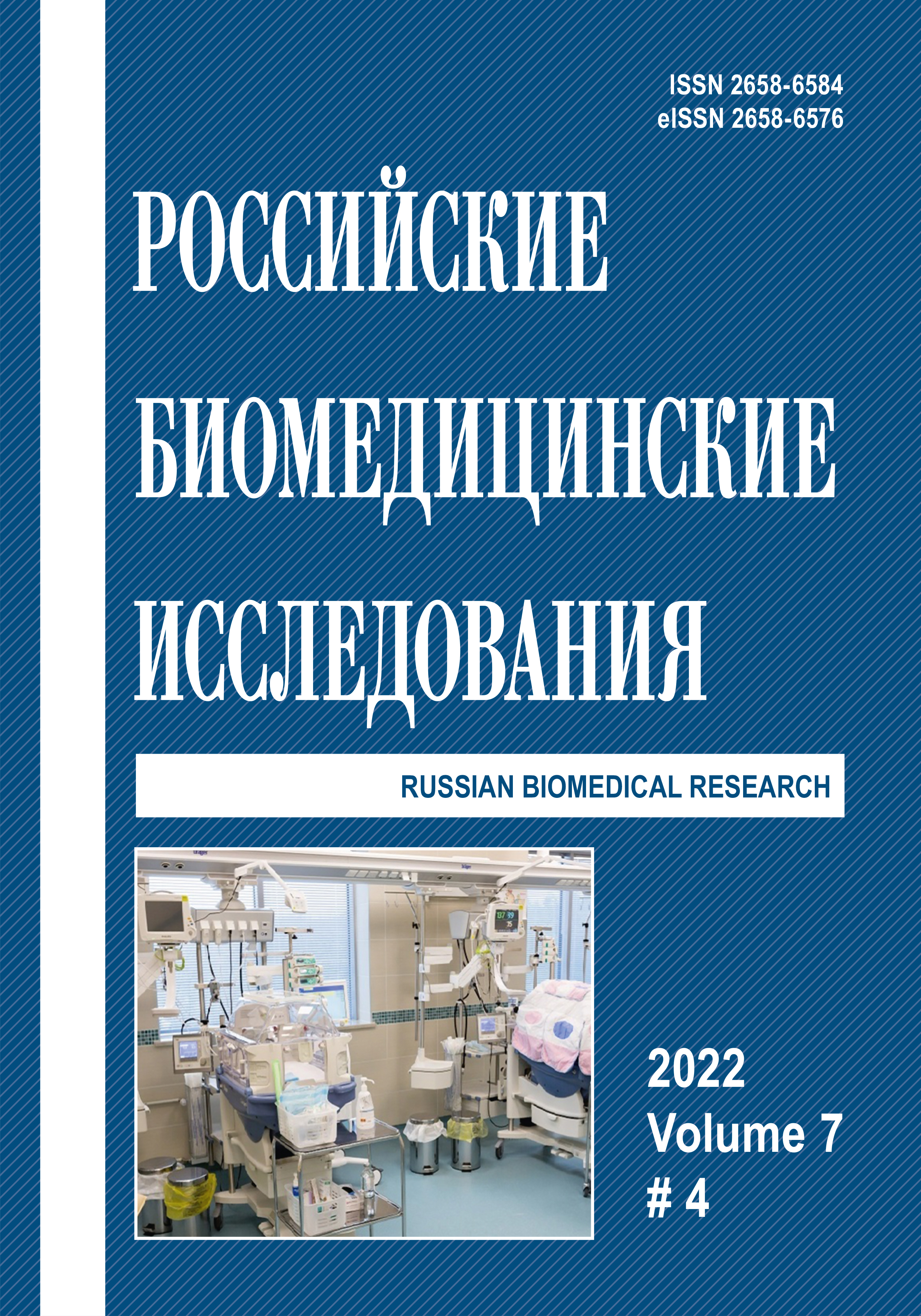NEUROHUMORAL RESPONSE TO SURGICAL TRAUMA IN POST BRAIN TUMOR NEUROSURGERY PATIENTS
Abstract
Background. The achievements of modern neuro - oncology and neuroanesthesiology have allowed neurosurgeons to operate on previously inaccessible tumors. This, on the one hand, improved the results of treatment, on the other, led to an increase in the frequency of complicated postoperative course. The aim of the study was to identify the main neurohumoral changes in the complicated course of the postoperative period in neuro - oncological patients. Material and methods. The study included 49 patients aged 18 to 72 years. Group 1 (n=12) included patients with a favorable outcome, group 2 (n=13) with an unfavorable outcome. Comparison group 3 (uncomplicated intra and postoperative periods) (n=24). Clinical, instrumental, laboratory studies were conducted, including hormonal status, inflammatory response. Results. An increase in cytokine levels relative to normal values (p <0,01) was detected in all groups. On the part of the neuroendocrine system, a stress response was detected in all groups, the development of water - electrolyte disorders, infectious and trophic complications (except for the comparison group), increased catabolism; organ failure, hyperfermentemia; sympathetic hyperactivity were observed. Conclusion. The data obtained as a result of the study indicate the development of a pronounced neurohumoral response to severe brain damage in patients. This response developed from the neuroendocrine, neuroimmune, autonomic nervous systems, at the intercellular and organ levels. Neurovegetative stabilization did not suppress the function of the endocrine and immune systems, but had a stress - limiting effect, contributed to the conjugation of humoral systems.



